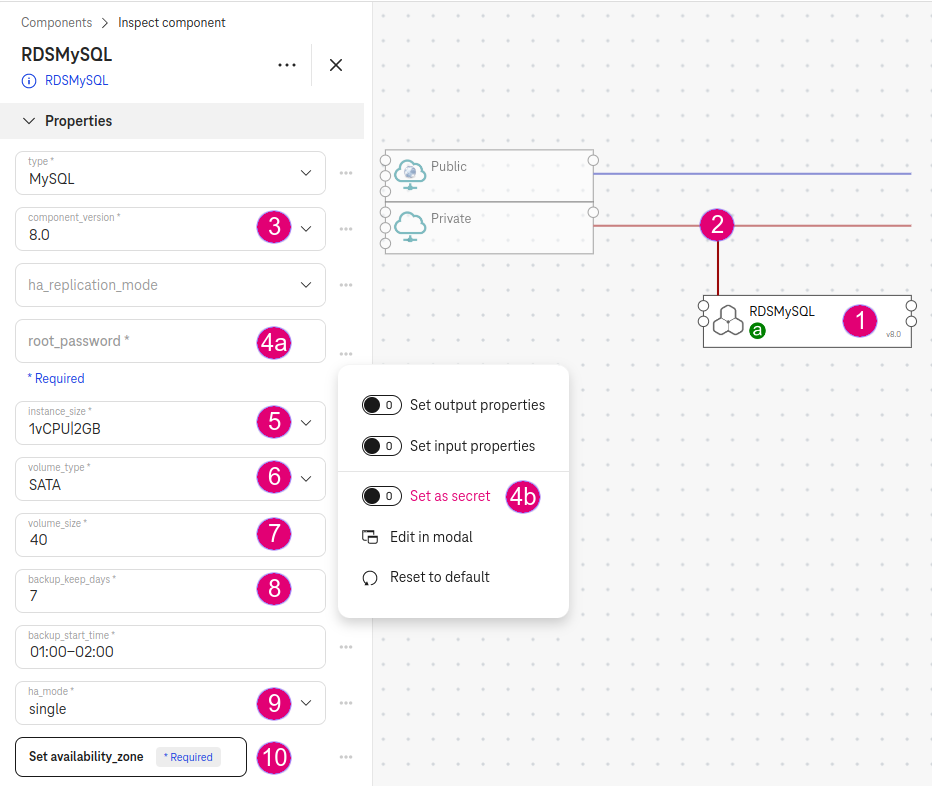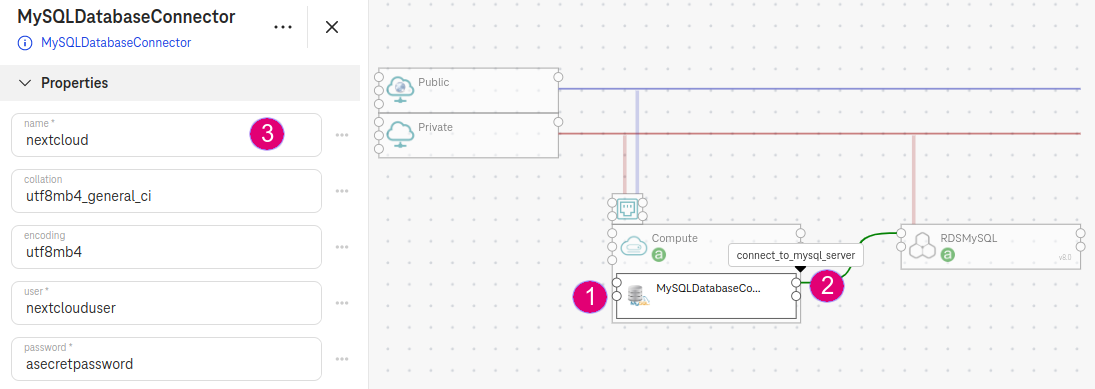Relational Database Service¶
1. About¶
Use this component to deploy the Relational Database Service (RDS) on Open Telekom Cloud. With RDS, you can deploy a MySQL, PostgreSQL, or Microsoft SQL Server.
RDS is a cloud service with auto-backup, auto-upgrade and high availability features, which are fully managed via Open Telekom Cloud console.
Because the cloud service is fully managed by Open Telekom Cloud, users cannot SSH to the RDS Virtual Machine. If you wish to have a full control of the VM, use the MySQL server instead.
2. How to use¶
2.1. How to deploy a MySQL server¶
Drop the RDSMySQL component.
Connect RDSMySQL to a Private network. (Optional) connect it to a Public network if you wish to assign a floating IP to the RDS.
Specify the component_version (e.g.,
8.0). For all supported versions, see Help Documentation.Specify the root_password (e.g.,
Test1234). If you do not want to expose the password as plaintext, set it as a secret (Step 4b). See How to define secrets for your application.

Figure 1. RDSMySQL¶
Specify the instance_size (e.g.,
1vCPU|2GBfor 1 vCPU and 2GB RAM).Specify the volume_type for the Block Storage (e.g.,
SATAorSSD).Specify the volume_size for the Block Storage (e.g.,
40GB).Specify the backup_keep_days for the backup retention time (e.g.,
7). If set to0, auto-backup feature is disabled.Specify the ha_mode (e.g.,
singlefor one instance).Specify the availability_zone (e.g.,
eu-de-03).
2.2. How to deploy the MySQL server in high availability mode¶
Specify the ha_mode as
ha.Specify two availability_zone (e.g.,
eu-de-01andeu-de-03).Specify ha_replication_mode (
asyncorsemisync).
2.3. How to get the IP address of RDS¶
Select RDSMySQL component.
Set the attribute private_address as output properties.

Figure 2. Set output for RDS¶
The deployment will output the private IP of RDS. Alternatively, you can get the IP via the Open Telekom Cloud console.
2.4. How to create MySQL database and user¶
Drop more than one MySQLDatabaseConnector components on a Compute.
Connect MySQLDatabaseConnector to RDSMySQL via connect_to_mysql_server.
Specify the database name, encoding, user and password accordingly.

Figure 3. Using MySQLDatabaseConnector¶
3. Expect result¶
A MySQL Client (i.e., the
PyMySQLpackage) is deployed on the Compute VM.The orchestration engine uses the Compute VM to access the remote RDS on port
3306and create the given database and user on the remote RDS.
Tip
If you do not wish to use the connector component, you can create the database and user manually using any MySQL client e.g., mysql -h <RDS_IP_ADDRESS> -P 3306 -u root -p